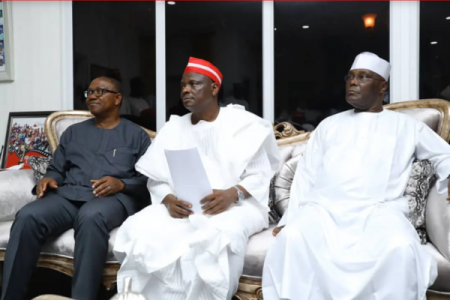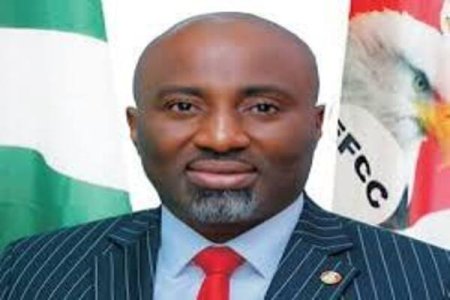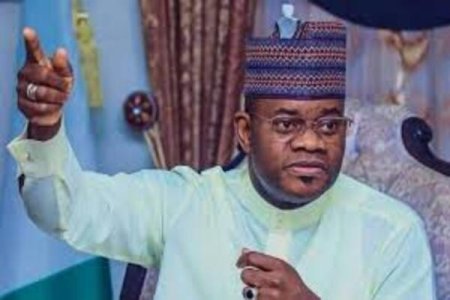
In a significant move aimed at fortifying Nigeria's democratic foundation, the Labour Party has officially declared its allegiance to the newly established Coalition of Concerned Political Parties. This development comes in the wake of the coalition's formation on December 6, 2023, involving prominent political entities such as the Peoples Democratic Party (PDP), the Social Democratic Party, the African Democratic Congress, the Peoples Allied Movement, the Young Progressives Party, the New Nigeria Peoples Party, and the Zenith Labour Party.
The coalition, conceived at the National Secretariat of the Social Democratic Party in Abuja, gathered leaders from various political spheres, emphasizing the collaborative effort to strengthen the nation's democratic fabric.
However, during the coalition's announcement, the absence of the Labour Party raised questions and fueled speculations about its inclination to partake in such political unions. Contrary to expectations, the National Secretary of the Labour Party, Umar Farouk, clarified the party's stance in an interview with The Punch. He revealed, "They (coalition) wrote and informed us. In fact, we shortlisted people to represent the party at the session yesterday (Thursday); unfortunately, those who were supposed to be there did not go. But we are together with them. The LP is part and parcel of the coalition."
Yunusa Tanko, another prominent figure within the Labour Party, echoed Farouk's sentiments, emphasizing the party's ongoing dialogues with the PDP and NNPP. Their collaborative efforts aim to safeguard Nigeria from veering into a one-party state, underlining the collective responsibility of all stakeholders in preserving the democratic ethos.
As the Labour Party aligns itself with this coalition, political observers anticipate a dynamic shift in the nation's political landscape. The collaboration with key players like the PDP and NNPP signifies a concerted effort to maintain a diversified and robust democratic structure, thwarting the potential risks of a one-party dominance. The coming together of these influential parties marks a pivotal moment in Nigerian politics, reflecting a shared commitment to upholding democracy in the face of evolving challenges




